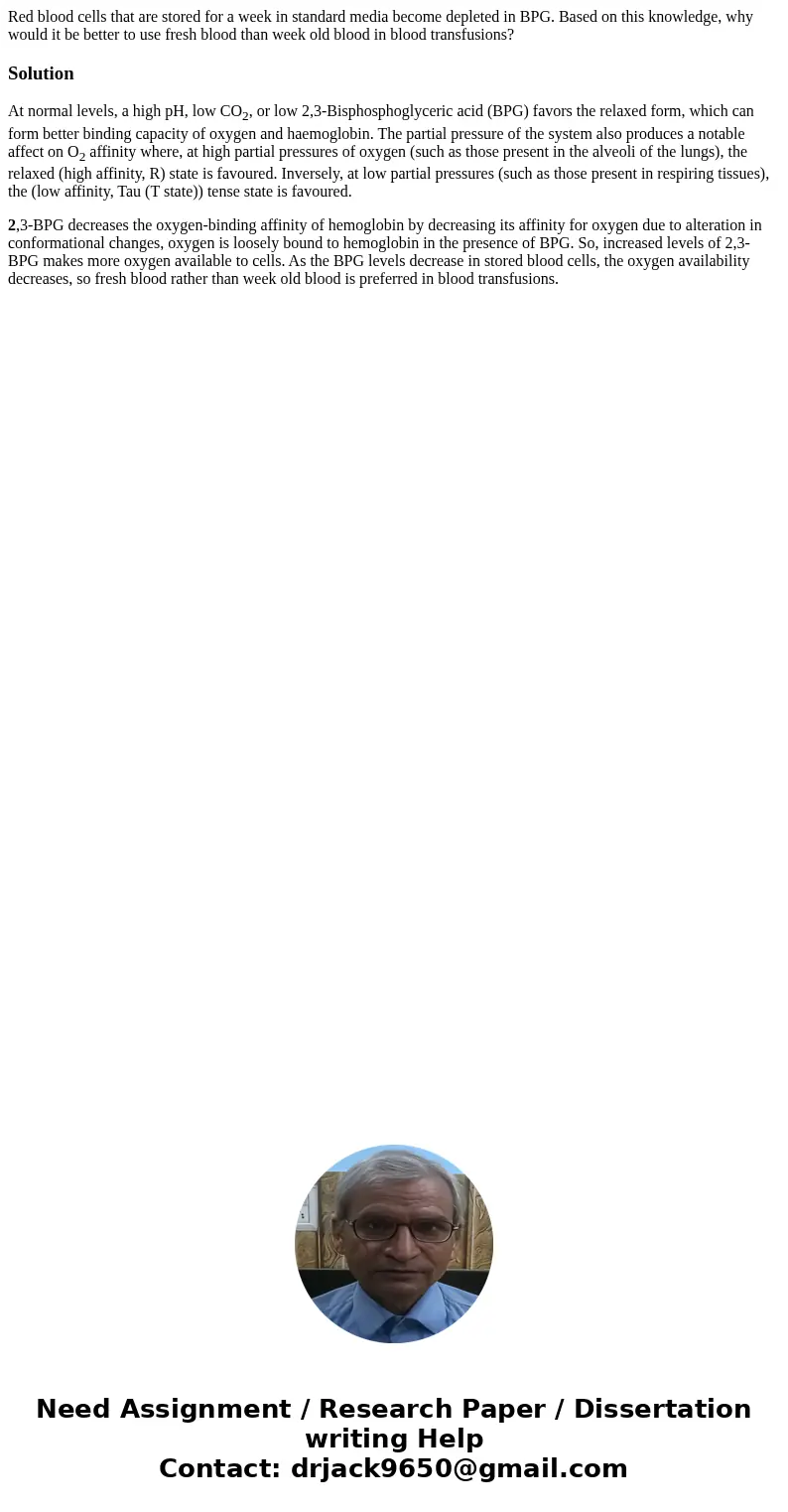Red blood cells that are stored for a week in standard media
Red blood cells that are stored for a week in standard media become depleted in BPG. Based on this knowledge, why would it be better to use fresh blood than week old blood in blood transfusions?
Solution
At normal levels, a high pH, low CO2, or low 2,3-Bisphosphoglyceric acid (BPG) favors the relaxed form, which can form better binding capacity of oxygen and haemoglobin. The partial pressure of the system also produces a notable affect on O2 affinity where, at high partial pressures of oxygen (such as those present in the alveoli of the lungs), the relaxed (high affinity, R) state is favoured. Inversely, at low partial pressures (such as those present in respiring tissues), the (low affinity, Tau (T state)) tense state is favoured.
2,3-BPG decreases the oxygen-binding affinity of hemoglobin by decreasing its affinity for oxygen due to alteration in conformational changes, oxygen is loosely bound to hemoglobin in the presence of BPG. So, increased levels of 2,3-BPG makes more oxygen available to cells. As the BPG levels decrease in stored blood cells, the oxygen availability decreases, so fresh blood rather than week old blood is preferred in blood transfusions.

 Homework Sourse
Homework Sourse